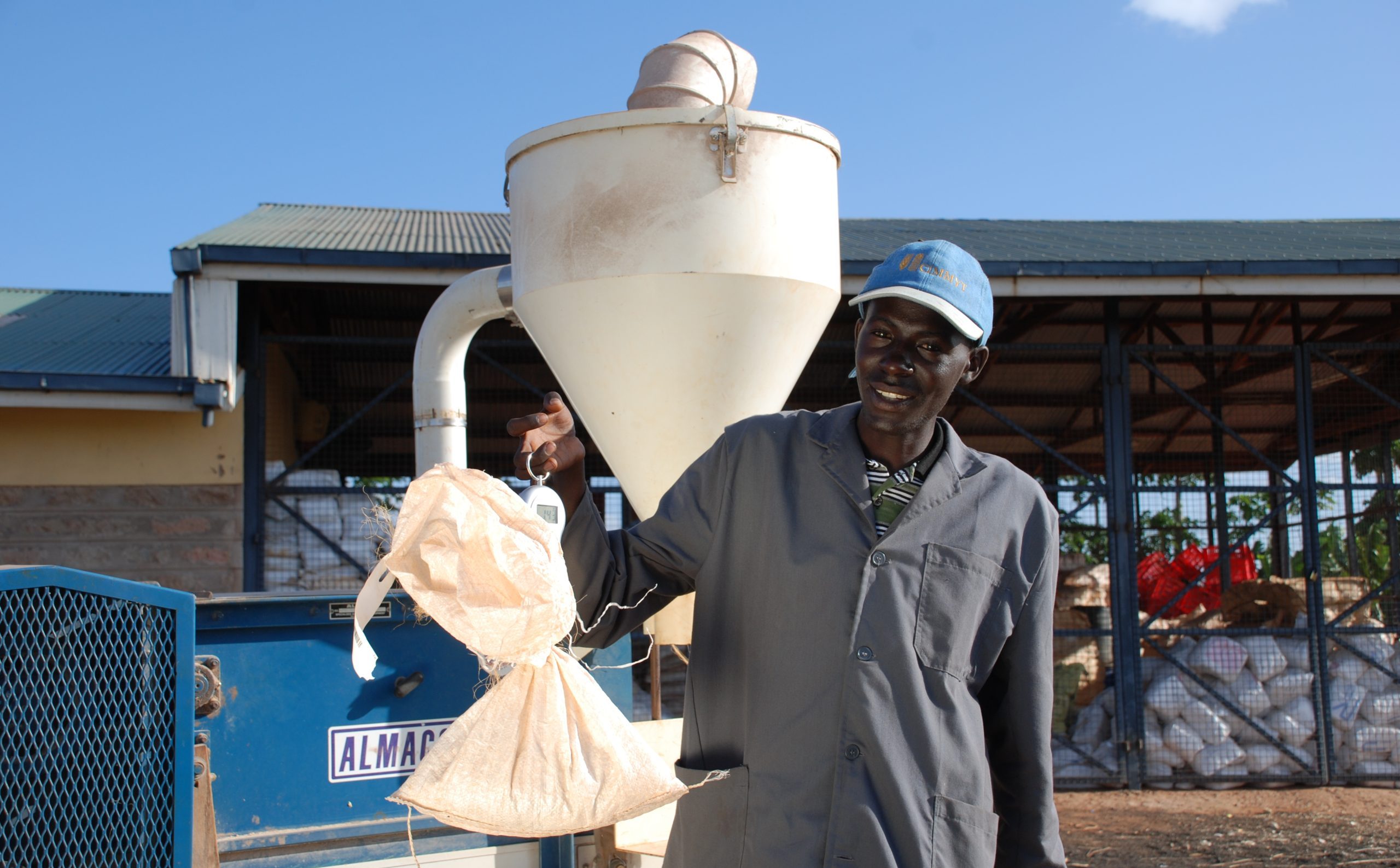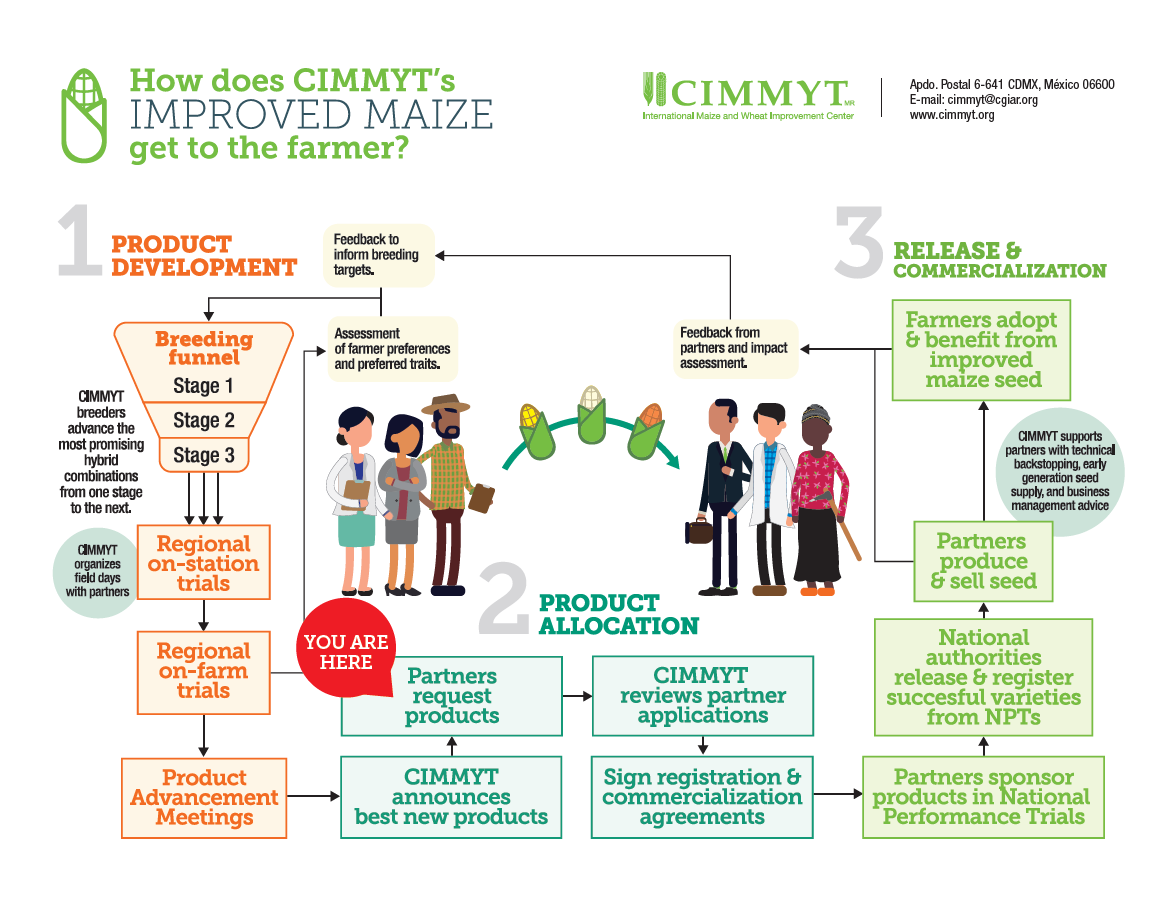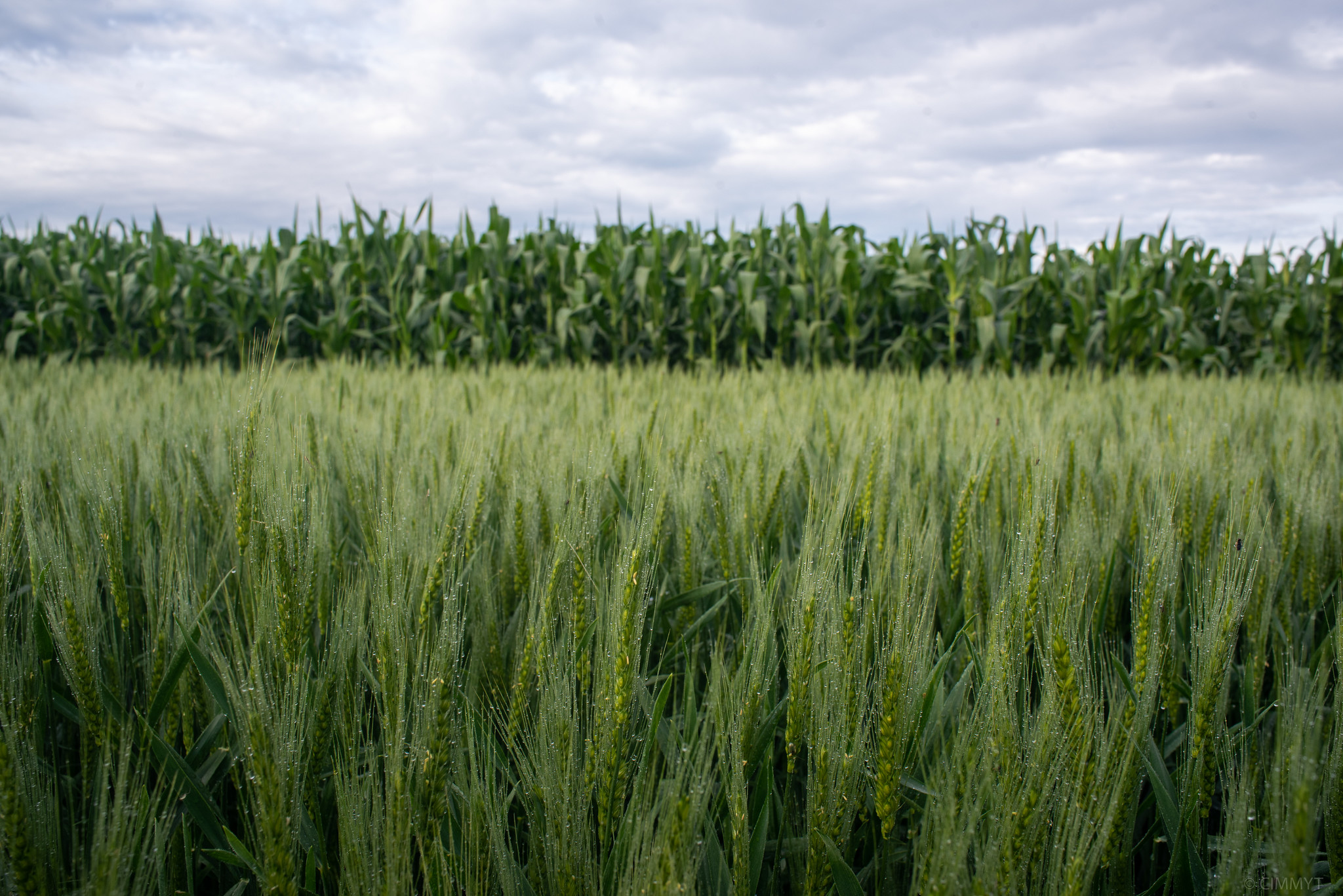On a visit to Kenya, Bill Gates had the opportunity to learn how smallholder farmers like Mary Mathuli are adapting their practices to account for the impacts of climate change.
Mathuli drew attention to the innovations that are making her life easier, such as drought-tolerant maize seed varieties developed by the International Maize and Wheat Improvement Center (CIMMYT) and the Kenya Agriculture and Livestock Research Organization (KALRO). She also cited her mobile phone as a vital tool, allowing her access essential information, such as weather forecasts, market prices, and technical farming support.
“In sub-Saharan Africa, more than half of the population works in agriculture,” explains Gates. “Together, they produce about 80 percent of the continent’s food supply. And most of the people doing the backbreaking farm work—like the chores I performed—are women.”
In addition to managing her farm, Mathuli is a model farmer and Village Based Advisor with the Cereal Growers Association, encouraging other farmers to adopt new practices that will improve their productivity. “She is clearly doing a good job in this role because more than 90 percent of farmers in her area have embraced one of the new adaptation practices,” said Gates.
Read the original article: On Africa’s farms, the forecast calls for adaptation and innovation

 Climate adaptation and mitigation
Climate adaptation and mitigation 
